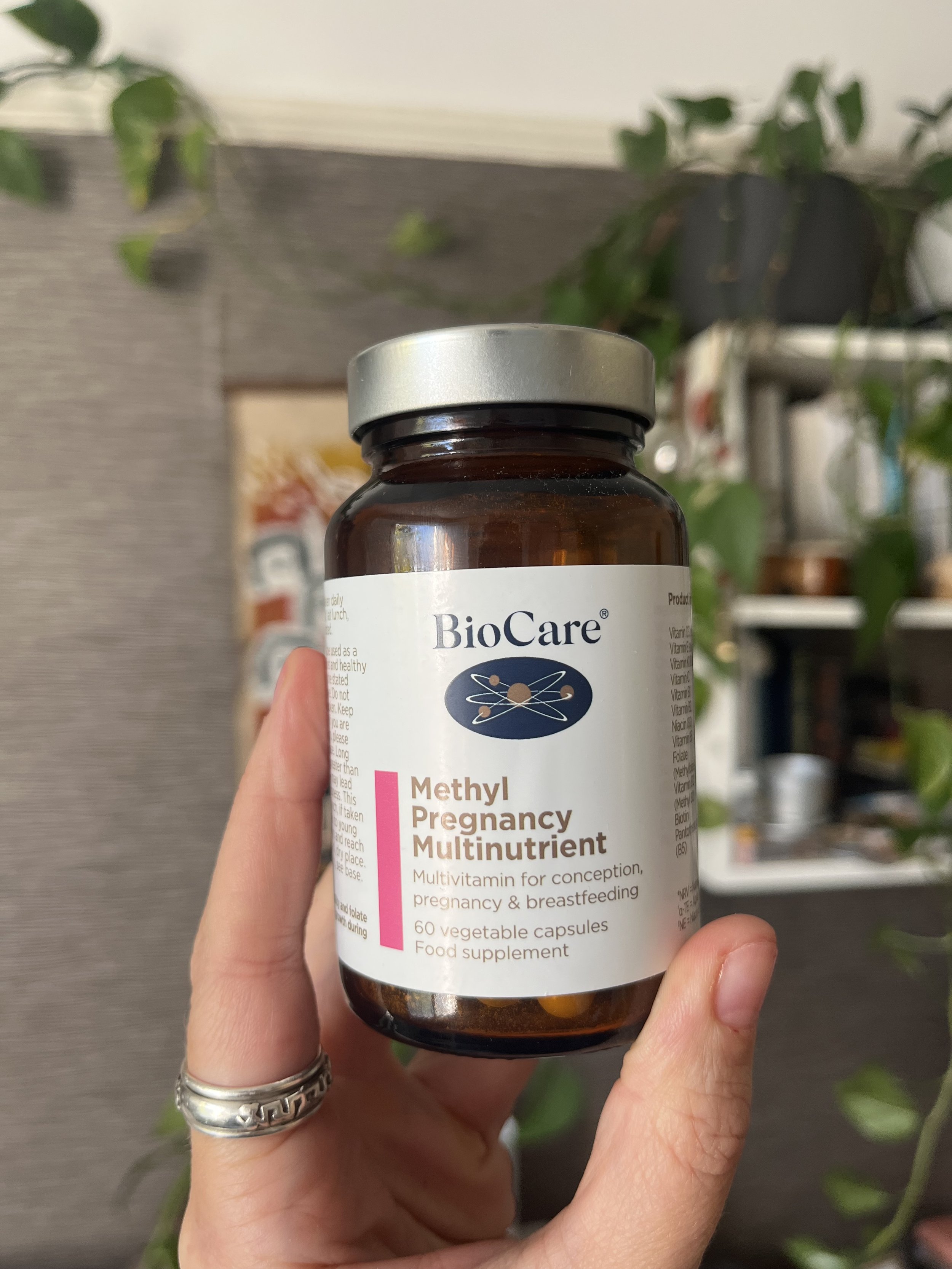Folic Acid vs Methylfolate
Folate:
Natural, food found version of Vitamin B9. Folate is required for formation of new cells, DNA and RNA. Folate reduces the risk of Neural Tube Defects; one of the earliest foetal structures to form with defects affecting development of spine, skull and brain. Folate isn’t produced by the body, it is found in food sources such as dark leafy greens, legumes, nuts, seeds and egg yolks.
Folic Acid:
Folic acid is the synthetic form of folate. It has been suggested that not enough folate can be obtained from diet sources alone, and given the important role of the vitamin in the healthy development of a baby, a supplemental dose of 400 micrograms of folic acid is recommended by the NHS in the UK. However, while chemically similar to folate, it must be converted through multiple enzymatic steps, which can be inefficient in some individuals
Methylfolate:
Methylfolate (5-MTHF) is the active form of folate in the human body. It has gone through the process of methylation. This process is undergone by every human, as converting folate (as folate from food AND folic acid) to methylfolate (via methylation) is necessary for folate to effectively exert its benefits on the body. However, it is estimated that 40% of the global population have a varying effectiveness of how well their body performs the process of methylation. This means the amount of usable, active methylfolate circulating the body may be suboptimal.
Folic acid vs. methylfolate in pregnancy:
So, you have newly found out you’re pregnant. You take your folic acid as recommended, but here’s the catch; a synthetic vitamin with possibly lower bioavailability and then your body may be unable to properly process it via methylation. While you are supplementing the recommended 400 micrograms of folic acid recommended, you and babies cells my not be receiving an adequate amount of active folate.This is where a methylated folate supplement may come in!
Folate is important and that is the main point. While folic acid may not provide optimum, active amounts, it is commercially available and reasonably priced. Methylated folate supplements may provide better support as they bypass the methylation process, and there are some lovely professional blends available. This is why I personally choose to use methylfolate and often recommend it to my clients, especially when bioavailability may be a concern. That said, the priority is consistent supplementation—whether folic acid or methylfolate—based on what is accessible, affordable, and appropriate for your body.
Always seek the support of a professional when deciding what supplements will nourish you best.
My personal recommendation; Methyl Pregnancy Multinutrient by Biocare.

